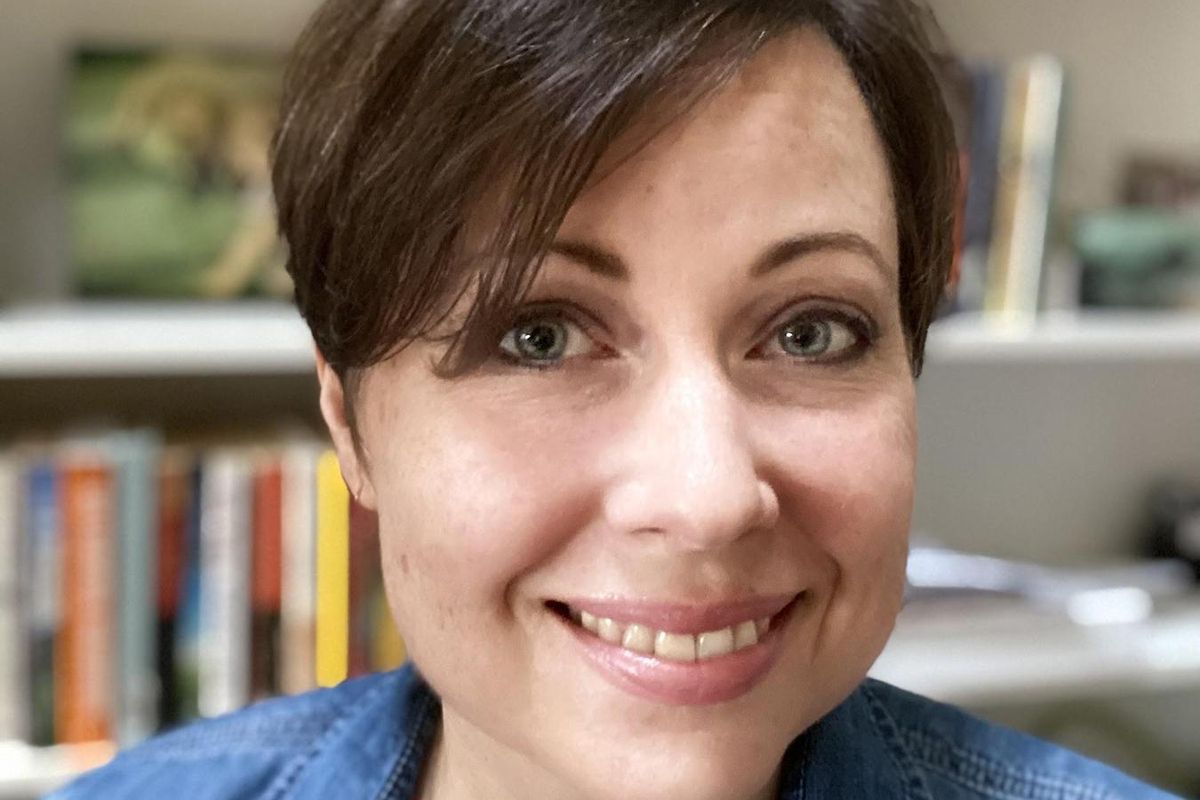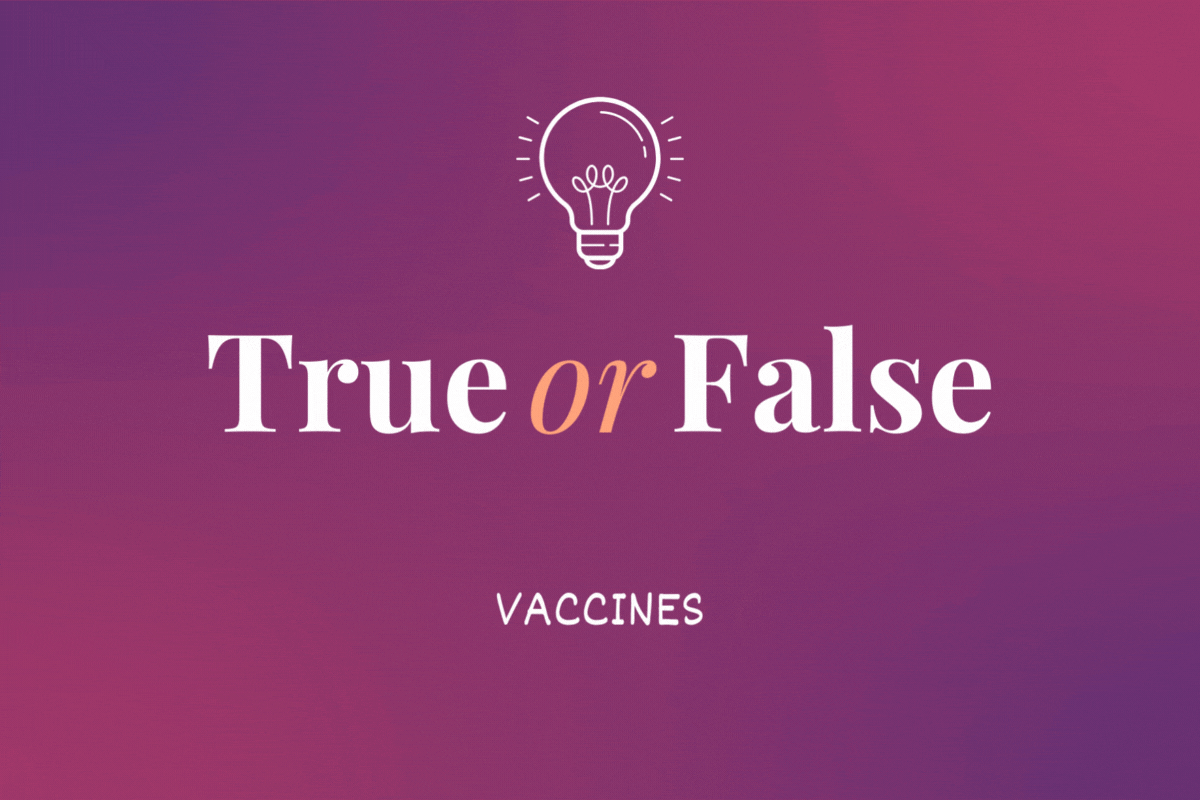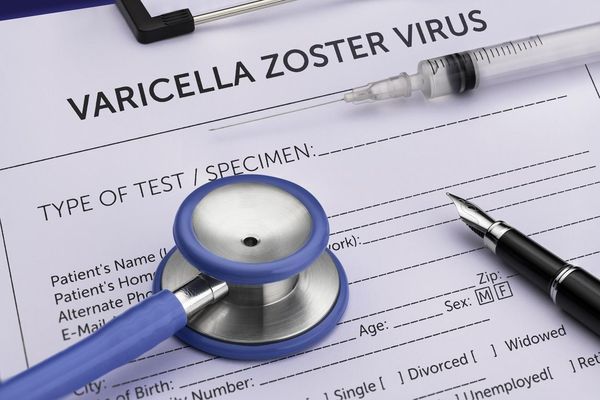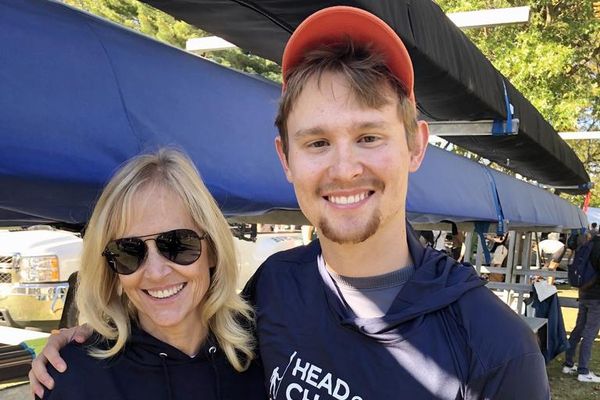When I tell people my story about how I went from being an anti-vaxxer to deciding to vaccinate my children, they often seize on the fact that I only did so once my family contracted a nasty case of rotavirus. But like so many things in life, my decision-making process was much more nuanced than that: It involved years of questioning, overcoming deeply rooted skepticism from my childhood and conversations with people I trusted.
I was fully vaccinated as a child, as were my sisters. But my mother always questioned the decision she made, partly because one of my sisters spiked a high fever after getting a vaccine. As an adult, I became equally hesitant.
I was 33 when my first child was born and 35 when the twins came. Before I even got pregnant, I knew I wanted to investigate vaccine safety. That was partly due to my hippie-type upbringing, where my mother regularly questioned mainstream medicine. When I was a young adult, she once said to me, "I'm glad I don't have to make this decision [whether to vaccinate] now. I'm glad my kids are already grown because I don't know what I would do if I had it to do all over again."
I've always had a bit of a rebellious nature and don't agree with doing something just because the bureaucracy tells me to. If you had asked me back when I was questioning vaccine safety, "Do you consider yourself to be biased against vaccines?" at the time I probably would have said, "No, I just want to know the truth." But in hindsight, I definitely had a bias and wanted confirmation of that bias.
So I went looking for evidence that vaccines were not safe, which is dangerous to do in the age of Google.
I decided not to vaccinate my children, in part, because I suffer from analysis paralysis, and I was afraid of making the wrong choice. It seemed that the decision not to vaccinate was the passive choice and — unlike vaccinating — it wasn't permanent. If there was a measles outbreak or if my children were in imminent danger because there was some sort of pandemic, I'd revisit that choice.
My mother supported my decision and, while my then–mother-in-law questioned me, she didn't push it. My best friend at the time also decided not to vaccinate her children, and together we lived in an echo chamber. When I talked to my kids' pediatrician, he berated me about my concerns over vaccine safety, and I left the appointment more entrenched in my views. He missed an opportunity because I was already questioning and would have taken some advice.
Every once in a while, though, I would start Googling again and think, "Did I make the right decision?" Then I'd go hunting for evidence supporting why vaccines were dangerous. And I'd go, "OK, I made the right decision I think for now." Then six months later, the same question would enter my mind.
But it wasn't until a colleague I greatly admired called out my choice not to vaccinate that I truly started to waver. I confided in her because I thought she would be sympathetic, since she had a similar upbringing to mine. Instead, she responded in anger at the reasons behind my decision and said they were ill-informed and lacked evidence.
I greatly cared what she thought and was embarrassed. Until then, I was content in my bubble with people who shared the same views. My colleague was the first person who had the courage to be blunt with me and say, "Hey, I totally disagree with that decision; that kind of makes me mad that you made that decision." Her words kept ringing in my ears and started to compete with what I was getting from Google.
A few months later, the rotavirus hit our family. My kids — then 5 and 2 — would sit on the toilet crying. At first, I thought it was a 24-hour stomach flu, but a couple days went by and we weren't getting better. I called the doctor and described our symptoms. He concluded that it was rotavirus and was connected to our kids not being vaccinated. With my colleague's words still in my head, it slowly dawned on me that we could have avoided rotavirus because there's a vaccine for it.
That was around the time the measles outbreak hit California, and people were getting seriously ill. That was another reason for me to pause and question my decision.
That spring, I returned to Google with another vaccine question. The last time I searched, I asked, "What is dangerous about vaccines, and what are the potential harms of vaccinating?" This time, I typed, "What are the benefits of vaccines? Why are vaccines safe?" The evidence was substantial.
A couple of days later, I called a new pediatrician and explained my family's situation. She was very understanding. Instead of berating me for my decision, she asked me, "What do you want to do? What's the plan?" Together, we worked out a vaccine schedule to get my kids caught up. At the first appointment, I initially wanted to tiptoe into it. My mind changed once I saw that they had no side effects and, after the first couple vaccinations, they weren't afraid. Within a few months, they were all caught up.
If I'm going to stand on a soapbox about anything related to this topic, it's that it's understandable that parents are worried about vaccines. You take a healthy newborn and inject them with chemicals with long, scary-sounding names that you don't understand what they are, and it can be frightening. But the approach shouldn't be to shame those people into compliance. It should be to present them with knowledge and evidence that show vaccines are safe.
People with their heels completely dug in are not going to change their minds, no matter what anybody says. But the on-the-fence people are reachable, and we should make every effort to reach them — with kindness and empathy.
It would have made all the difference for me.
This resource was created with support from Merck and Pfizer.
- Black Organizations Are Doing Their Part to Get More Black People Vaccinated Against COVID-19 ›
- Nicole Ari Parker on Choosing to Protect Herself and Her Family from Covid ›
- Vaccine Education Program ›
- 6 Common Concerns of Vaccine-Hesitant People - HealthyWomen ›
- Top 5 Ways to Feel Empowered About Vaccine Decision-Making - HealthyWomen ›
- How Are Vaccines Made? - HealthyWomen ›
- The Truth About Vaccines - HealthyWomen ›







